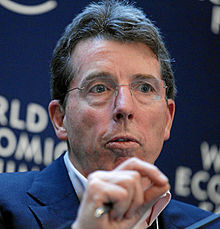The City should listen to their communications teams
2 July 2012 By Northern Lights

Many would say that the City of London’s reputation came out of the insurance market where a handshake was a gentleman’s pledge to honour the deal.
Across the world, the British are known for our honesty and decency – it is a distinctive brand that helps to win contracts overseas, particularly in the Middle East and China. In the Gulf region, businesses say the Bribery Act gives them a competitive advantage.
Yet now it is the very financial services industry that helped build this country’s honourable reputation that is in danger of destroying it.
As communications advisers there are three basic rules to managing a crisis
– Admit your mistake
– Apologise and genuinely mean it
– Put right the damage at your personal expense
Bob Diamond, chief executive of Barclays bank, is in the spotlight because under his ‘leadership’ the company has been fined by the Financial Services Authority (FSA) for manipulation of the London interbank lending rate, Libor; fined by the FSA for mis-selling interest rate hedging products to small and medium sized businesses; and last year was forced to set aside £1bn to pay customers that had been mis-sold payment protection insurance – profits dropped 33%.
Despite this shocking record, Bob Diamond has not admitted his failures, certainly not apologised and not put anything right at his personal expense.
This country is in recession and we will get out of it by exporting. To do that we need to maximise and protect our international brand.
Here is our six point plan to do that – and yes, some of it is drastic. But when you face a crisis of confidence as Barclays, the City and the FSA is facing – you have to be radical to regain trust and show you are serious.
1. Bob Diamond has to go
Every corner of this country is screaming for Bob Diamond to be sacked. The very fact that he thinks he can stay shows just how incompetent he is to be running this bank.
2. Replace 30% of the city’s boards with new faces
For decades the City has been run by the same old recycled faces. They have become a Club where they reassure each other that things are OK. Everyone has kidded themselves that they have extraordinary talents justifying £10m a year salaries. The whole thing is poppycock.
When the rest of the City knew there was something funny going on with Libor, Barclays’ bosses either kidded themselves they could ride the storm or (as they say) knew nothing of the scandals. Either way, this is incompetence in the extreme. Bringing in fresh faces – perhaps some with little City experience – will mean more people are asking the ‘stupid question’ and wanting some honest answers.
3. Sack the headhunters
This is hard for us to write – we have worked with a number of headhunters as clients and there are some very good headhunters out there.
However, over a late night glass of wine, most will admit that they have played a significant role in pushing salaries to such high levels – their fees are based on pay levels – and that they do not know how to recruit from new ‘gene pools’.
No-one could say that they have achieved an amazing set of ‘talent’ to run our city institutions. We cannot be any worse off by using different methods to recruit and look in new places.
4. Set maximum levels of pay pro rata to average employee pay
The former chief executive of Greggs the bakers, Sir Michael Darrington, said that if ‘executive pay was halved it would still be generous’.
Executives in our banks are only there because every UK taxpayer has helped prop up the whole banking system. If the government had not stepped in with its rescue packages, they would all have come tumbling down.
Taxpayers should therefore set pay levels – as a ratio to employee pay in a bank. CWJobs says the average of their advertised banking jobs is £67,500; PayScale says the average bank teller job is £9k to £21k. Taking £25k as an average salary, Bob Diamond is earning 400 times his average employee. Honestly, is he worth it?
5. Every board must have a communicator
Boards need to recruit for ‘emotional leadership’ as much as financial and sales.
Boards also need to consult and listen to their communications teams. It is hard to imagine that these teams would not be advising very different strategies for the boards of RBS, Barclays et al as to how they handle issues of compensation, regulatory fines and corporate culture. They know what needs doing – let them have a voice and influence.
6. Banking regulation that delivers
Few can believe that our regulators cannot sack Bob Diamond. Regulation needs overhauling.
